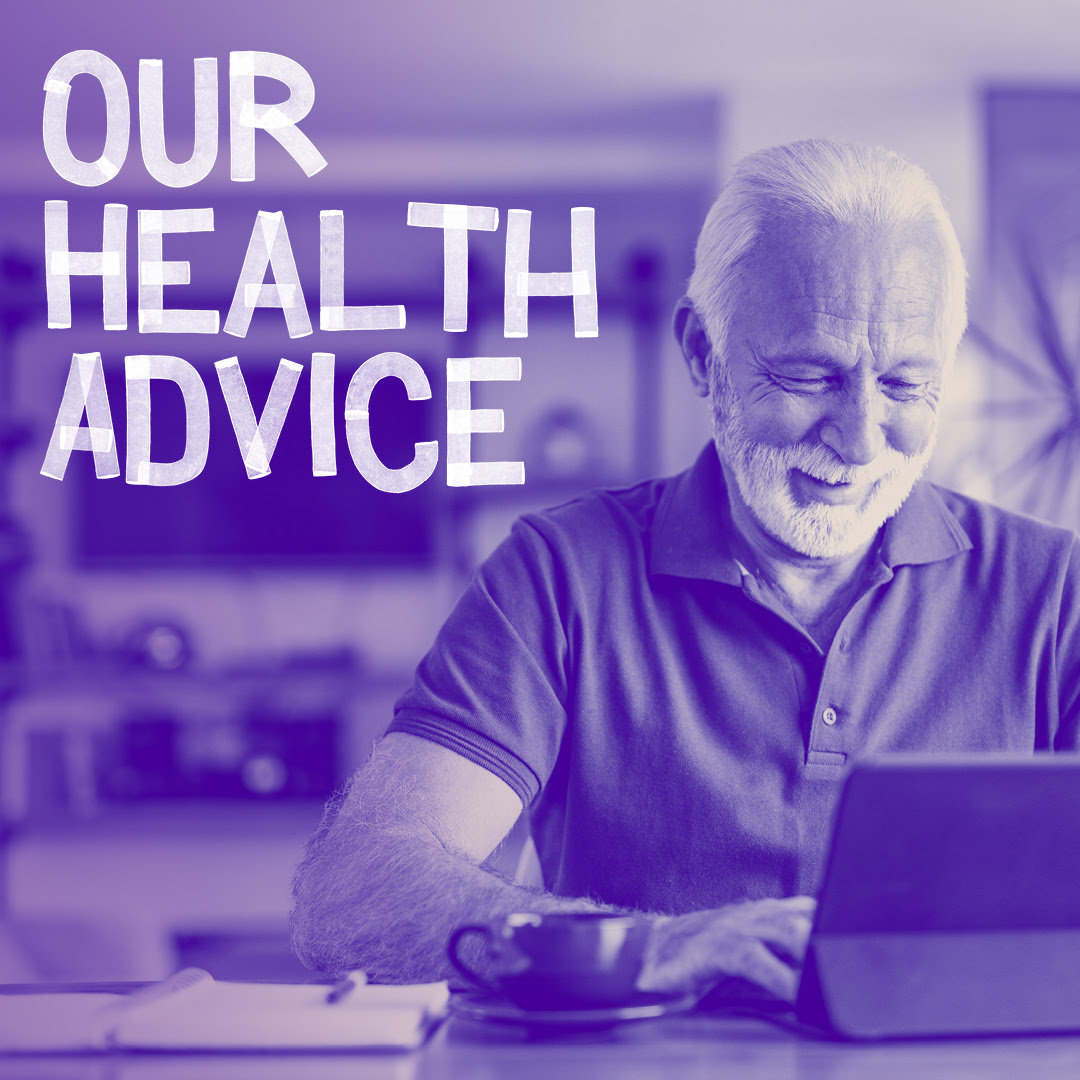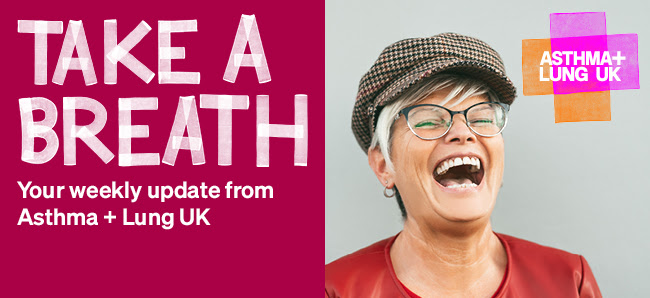From Asthma + Lung UK
Summer heatwaves and hot weather can affect anyone. But if you have a long-term lung condition, you’re more at risk of the heat affecting you.

Hot weather can cause your symptoms to flare up, especially if you become dehydrated. Strong sunshine causes the level of ozone and other air pollutants in the air to rise, which can cause breathing problems and trigger your symptoms. Humid, hot weather can also make your breathing problems worse.
The spring and summer months are when grasses and weeds make pollen levels higher. If you get hay fever and you live with a long-term lung condition, you may notice your lung condition symptoms get worse at this time.

Our top 10 tips during a heatwave
Here’s how to plan ahead to stay well and keep cool:
- Check the weather, pollen and pollution forecasts
- Avoid the heat when possible
- Keep out of the sun
- Use a fan
- Exercise sensibly
- Drink cold water
- Keep your home cool
- Take cool baths or showers
- Eat as normal
- Look out for yourself and others
1. Check the weather, pollen and pollution forecasts
To prepare for a heatwave, it’s a good idea to set up email alerts for hot weather. This way, you’ll know when it’s expected to be hot and you can see how long the hot weather will last.
Remember, high pollen and pollution levels can combine with heat and increase your chance of a flare-up of your symptoms. So, if you get hay fever, keep an eye on pollen levels and avoid going out when they are high. You can also check air pollution levels in your area for the next five days.
Read more about asthma and pollen.
It’s a good idea to have a self-management plan in place to help you manage and understand your symptoms. Create a plan with the support of your GP or nurse.
2. Avoid the heat when possible
If a heatwave is forecast, the hottest part of the day is normally between 11am and 3pm. If you have to go out, try to plan your day around the early morning or evening when the temperature is cooler and the air quality better.
When you’re outside, walk in the shade and avoid main roads and busy streets if you can. Take your time, especially if you have to be out in the hottest part of the day. Also, remember to bring a bag of essentials. This could include any medication you need, cold water and a handheld fan.
If you work outdoors and simply can’t avoid the heat, it may be worth talking with your employer to see if any steps can be taken to help keep you well at work.
3. Keep out of the sun
If you do need to go out during the day, avoid being in the sun for long stretches of time. Wear loose, cool clothing and a wide brimmed hat. Wear sunglasses too – try wraparound style ones as they cover the sides of your face. They will protect your skin from the sun and stop pollen getting in your eyes.
Certain antibiotics like doxycycline or ciprofloxacin, and medications like pirfenidone, can make you more sensitive to sunlight. If you’re taking one of these medications, you’ll burn more quickly, so make sure you cover up and wear high factor sun cream. You should even use sun block when the sun is not shining. Always check the information leaflet that came with your medication.
4. Use a fan

If you get out of breath, try using a handheld fan. Hold it about six inches away from the centre of your face and let the cool air blow towards you. Remember to keep your fan clean, so that you don’t blow dust into your face. A floor standing fan or desktop fan can also help, and you may sleep better if you have a fan in your bedroom at night.
Handheld fans are a good tip for relieving breathlessness at any time, but especially when it’s hot.
5. Exercise sensibly
Exercise brings a lot of benefits if you have a lung condition, but in hot weather take care you don’t overheat. Exercise indoors or outdoors, wherever feels coolest. Do activities like housework and gardening in the early morning or evening when it’s cooler.
If you do get breathless, use your breathing control techniques to ease the symptoms.
During a very hot spell, you may want to think about reducing or avoiding strenuous activity until it’s cooler.
6. Drink cold water
Have plenty of cold water and drink regularly even if you don’t feel thirsty – it’s important to stay hydrated.
I put my water bottle in the freezer before I go out, so it keeps lovely and cold.
Drinks with caffeine – such as tea, coffee or cola – and drinks high in sugar make you more dehydrated. Also, avoid too much alcohol as it makes you pee more and dehydrates you too.
7. Keep your home cool
Closing blinds or curtains can help to keep your home cool. If it’s cooler inside your house than outside, close the windows to keep the cool air in. At night when the air outside is cooler, open your windows if it’s safe to do so.
Pollen levels are highest in the early morning and early evening, so if you get hay fever, avoid opening windows at these times and try using a fan instead.

8. Take cool baths or showers
If you feel overheated, take a cool bath or shower or splash yourself with cool water.
Place a cool, wet flannel or tea towel around your neck to help cool down your skin.
9. Eat as normal
Try to eat as normal – even if you aren’t hungry. You need a normal diet to replace the salt you lose through sweating. Cold foods like salad and fruit are particularly good because they contain a lot of water.

10. Look out for yourself and others
If you live by yourself and find it hard to get out, arrange for someone to check on you. If you know someone who lives by themselves and finds it hard to get out, check on them when it gets hot.
These tips will help you cope in hot weather, but you should always be prepared for a flare-up of your symptoms. Have enough medication at home, keeping it below 25°C or in a fridge, following the storage instructions on the packaging. Make sure you have agreed a written plan with your health care professional so you know what to do if you feel unwell in any weather.
If you have COPD, download our free self-management plan. For people with asthma, you can download a free asthma action plan.
You can learn more about self-management in other lung conditions, such as bronchiectasis and pulmonary fibrosis, on our health information pages. Talk to your GP, nurse or respiratory specialist about creating a plan specific for you.

